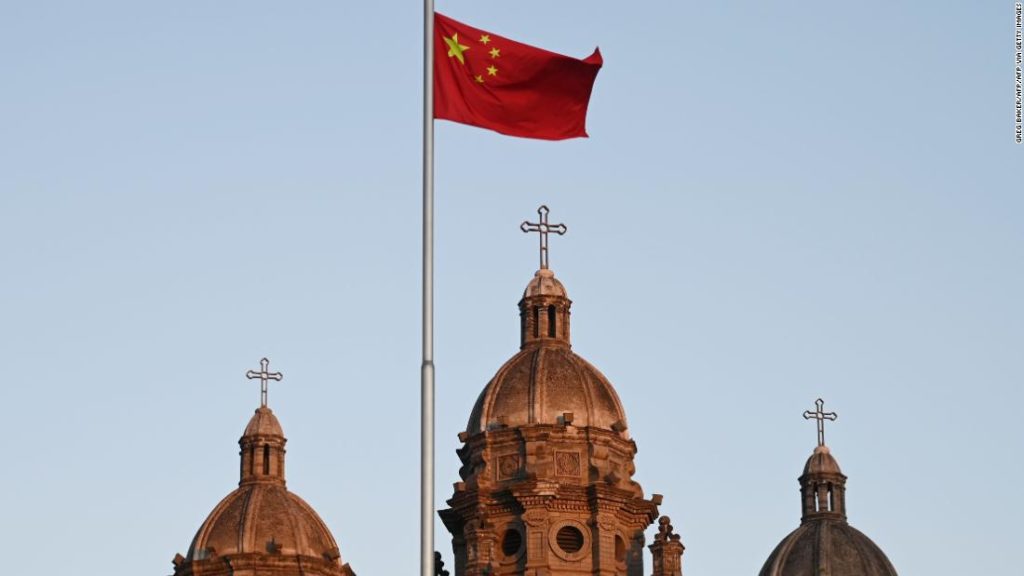Though the draft rules affirm China’s commitment to respecting “the freedom of religious belief of foreigners,” the list of potential new restrictions and requirements could make practicing that belief far more difficult.
In particular, the draft rules include a list of activities that foreigners should not conduct within China, such as “interfering with or dominating the affairs of Chinese religious groups,” advocating “extremist religious thoughts,” using religion to conduct terrorist activities, or “interfering with the appointment or management of Chinese clergy members.”
“What Pope Francis said about the Uyghurs is totally groundless,” Chinese foreign ministry spokesman Zhao Lijian said in a regular briefing Tuesday. “There are 56 ethnic groups in China, and the Uyghur ethnic group is an equal member of the big family of the Chinese nation.”
“The Chinese government has always treated the minority groups equally and protected their legitimate rights and interests,” Zhao added.
Rian Thum, an expert on Islam in China at the University of Nottingham, said the rules reflect a “longstanding fear of foreign pollution, which has become more important in the current climate.”
“I was struck by the repeated use of the phrase ‘China’s religious independence,’ which points to the nationalist desire to purify religions of ‘foreign’ influences,” he said. “The regulations look like an effort to seal off Chinese religious practitioners from their fellow believers outside the country. Even lectures by visiting religious figures would require a bureaucratic permissions process that would dissuade most visitors.”
For all the government’s talk of sinicizing Islam, most Muslims in China practice a domestic version of the faith, said Alkan Akad, a China researcher at Amnesty International, in mosques that are often more Chinese in style than Islamic. Those Muslims who do have contact with groups overseas often face increased scrutiny over this, and some Uyghurs have ended up in reeducation camps after returning from Hajj or trips to Muslim countries.
“The Chinese state has been quite concerned about the growing popularity of the Wahhabi ideology and close connections with Saudi Arabia, which has seemingly grown over the last decade or so,” Akad said.
Darren Byler, a Xinjiang expert and post-doctoral research fellow at the University of Colorado, said that “Islam itself is already more or less criminalized in Xinjiang so I would guess that (the new rules are) more likely aimed at Hui practice in Eastern China. They have long had more direct association with Saudi and global piety movements like Tabligh Jama’at.”
However, experts who spoke to CNN agreed that the main effect of the new rules will likely be on Christian groups, who, while never given free rein, have previously avoided the type of intense scrutiny Muslims are subjected to.
“I believe it’s reasonable to assume that it mainly targets Christians, which have been regarded as a means of foreign infiltration particularly since the Opium War,” Akad said.
Previously there has been broad tolerance for foreigners preaching to foreigners, provided they are officially licensed and ensure no Chinese citizens attend services. Some Christian groups are less scrupulous about this than others, and missionaries continue to operate illegally in China, Thum said.
The new regulations could further tighten grey areas around foreign religious practice, issuing strict new requirements for applying to hold services, including describing the primary religious texts used, listing the nationality and visa status of all attendees, and obtaining a permit to use the building for such activities.
After receiving such an application, the draft rules state, “the religious affairs department of the provincial people’s government shall solicit the religious affairs department of the county-level people’s government, the religious affairs department of the people’s government of the city divided into districts, and the province, autonomous region,” and shall make a decision “within 20 days.”
Such red tape, and the potential punishments for avoiding it, could make it far more difficult for foreigners to hold services, and push them to use approved Bibles or Korans rather than foreign published texts.
While specific punishments are not listed in the new proposal, there is a suggestion they could be severe, with talk of invoking “counter espionage” laws and other state security regulations against infractors.
“The way the rules are written, and the way that Chinese laws tend to be interpreted by the security services, suggests that foreigners who engage in religious activities alongside Chinese citizens or even do research on those activities could be detained or harassed,” Thum said.
CNN’s Ben Westcott contributed reporting.
You may also like
-
Afghanistan: Civilian casualties hit record high amid US withdrawal, UN says
-
How Taiwan is trying to defend against a cyber ‘World War III’
-
Pandemic travel news this week: Quarantine escapes and airplane disguises
-
Why would anyone trust Brexit Britain again?
-
Black fungus: A second crisis is killing survivors of India’s worst Covid wave

